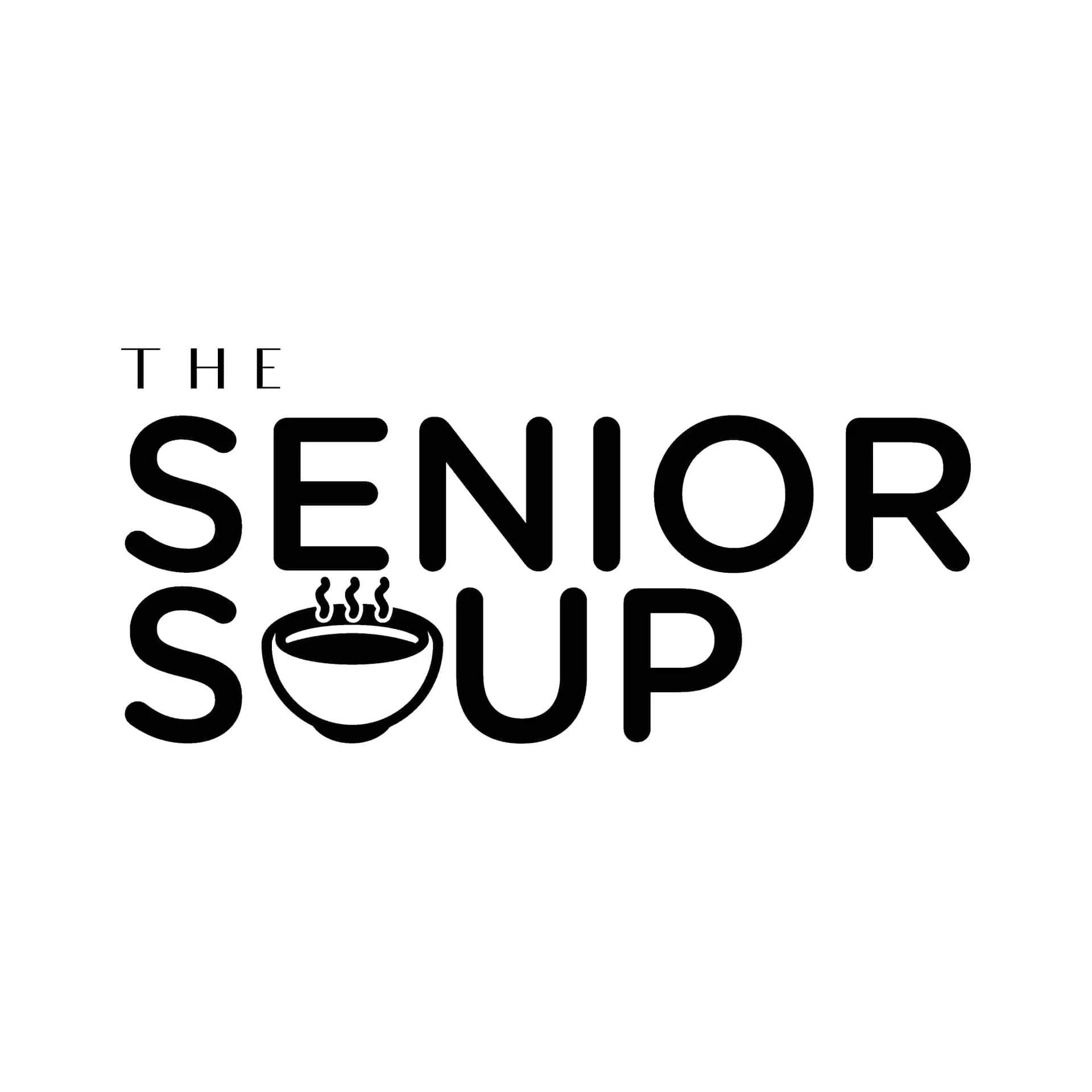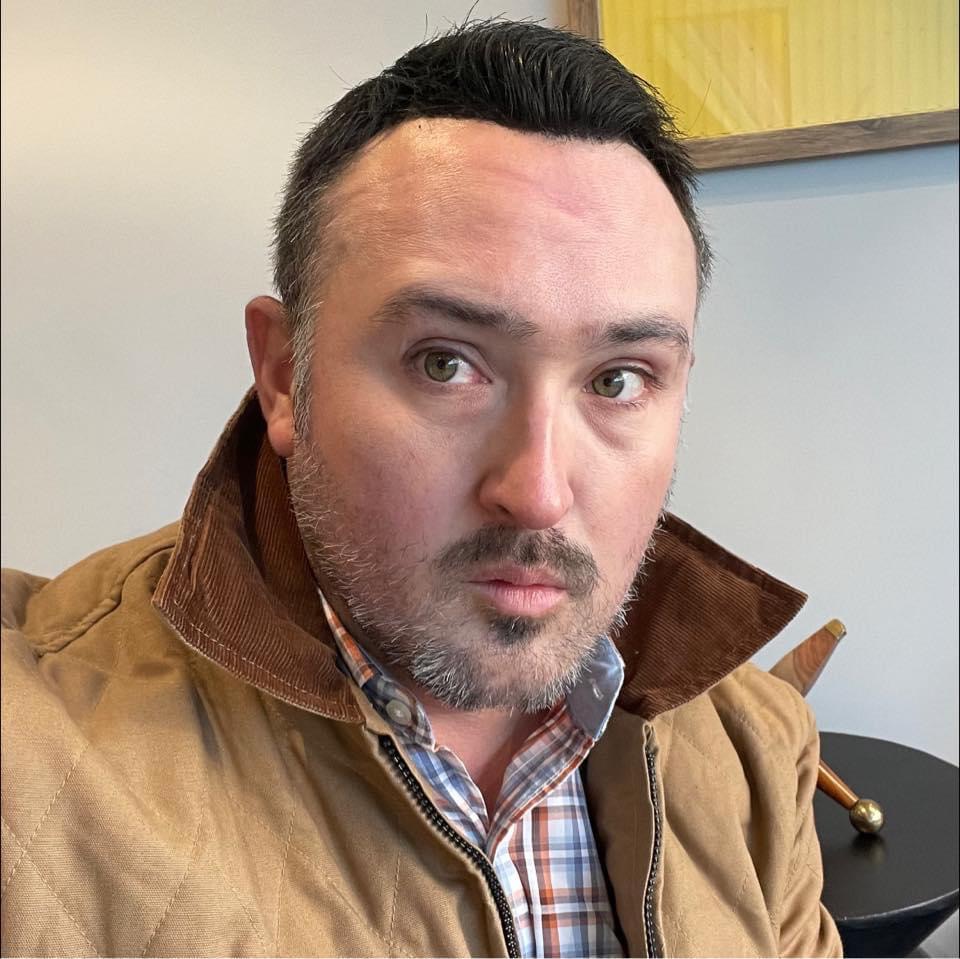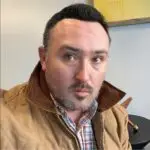I sat outside Meritus Health yesterday afternoon at four o’clock, watching people walk through the roundabout automatic doors, and I found myself thinking about truth — the kind you cannot manufacture or polish or present in a more favorable light.
Admittedly, I’ve done this more often than I remember, positioning myself on that same familiar bench near the entrance where the afternoon sun cuts across the walkway.
But this experience felt different. I’m going to tell you that story.
There’s Something About a Hospital Entrance That Strips Away All Pretense
In every other space we occupy — our offices, homes, fancy country clubs — we have the luxury of curation.
We can smooth our edges, present the versions of ourselves that fit the moment, and maintain the composure that society expects.
But seated at a hospital entrance, in this liminal space between the hospital parking lot and whatever waits inside those doors, people are too exhausted for performance, or they’re too frightened, relieved, or shattered.
It’s all too human, isn’t it?
A woman in her sixties walked past me yesterday afternoon with a particular kind of deliberate slowness; it wasn’t frailty but rather conservation. She walked as if she were gathering her strength for whatever awaited her beyond that circular, rotating entrance.
The woman’s face held an expression I can only describe as prepared resignation, the look of someone who has already absorbed difficult news and is now simply moving forward because that’s what one does.
Whatever it was, she knew; I felt that knowledge radiating from her.
Then, a few minutes later, a young couple emerged, and though I tried not to stare, I couldn’t help but notice the geography of their grief.
He had his arm around her shoulders with a delicate tenderness, but she held herself rigid, staring straight ahead at nothing and everything. The sun was in her eyes. It seemed like whoever he was, he desperately tried to catch her eyes, establish some connection, and share a moment of acknowledgment.
She wouldn’t — or couldn’t — look at him. They reached their car and sat there in the parking lot, motionless, for a couple of minutes, from what I can remember, before they left the parking lot.
That’s the extraordinary thing about standing outside a hospital — you witness the truth we spend the rest of our lives trying to obscure, manage, or contain.
You see it in the pace of someone’s walk, in the set of their jaw, in the way they grip a loved one’s hand as if that physical connection is the only thing keeping them tethered to the world. You may observe the man checking his watch outside the entrance, calculating how much time he has before duty calls him back inside. You might notice a young person texting with unusual intensity, possibly sharing sudden news she cannot yet speak aloud.
And you recognize a memory: a distinguished aging gentleman, likely from our Greatest Generation. Maybe he’s 95 or 96? You watch him slowly exiting a white Acura crossover SUV, his dignity still intact, proudly donning his favorite Boston Red Sox hat. He’s struggling a bit with walking.
You see his daughter exit the driver’s side quickly. She walks in front of her vehicle to open the door for her dad. My mother has never missed a doctor’s appointment in the last 15 years while caring for her aging parents.
And when you saw my mom and grandfather together at Meritus, you saw an aging father who likely understood that his journey was coming to a close. You’d know right away from seeing my mom help my grandfather from her vehicle that they’ve done this Meritus dance likely many times before. When you watch, you’d see every little detail, wrapped in what I can only describe as unadulterated and pure love.
I’ll never forget hearing my mother’s voice on the phone, only a few days after our first Thanksgiving during the COVID-19 global pandemic. I was standing at the car wash in Montgomery Village when Mom called me. Her voice was soft, slow, deliberate, and restrained. I felt the pain in every pause she took before encouraging me to do my best to spend more time with my grandfather.
She didn’t have to say it out loud; I hated that I understood my mom’s subtext. I knew the moment we were preparing for. I didn’t want to think about it. But I knew.
That dreaded moment inevitably came, as it would, on December 22, 2020.
Fleetwood Mac Wrote Beautiful Songs About These Life Moments
Perhaps I needed this human experience today more than I’ve needed it at any other time in my 39 years.
October 16th marked three months since my grandmother Maureen passed away at ninety-two, after a fifteen-year battle with Alzheimer’s that gradually took everything from her except, somehow, her sweet smile.
She died on a warm summer night, in her bed, surrounded by my mom, my stepfather, and me. She was the most wonderful woman I have ever known.
A little over a month after my grandmother died, my last remaining great uncle died at age 85 — my grandmother Joyce’s beloved brother, my Uncle Johnny.
There were twelve children in the Washington County Beard family. Now only one sibling remains: my grandmother Joyce, who resides in a memory care community in Washington County, the last living witness to a world and a way of life that exists now only in photographs and fading stories.
The foundation upon which I built my understanding of family, of continuity, of what it means to be connected to something larger than myself, is cracking and shifting beneath my feet.
The Empty Nest Isn’t Just a Metaphor
And even as I’m losing one generation, I’m watching another embark on an entirely new life journey.
My wife Kimberly and I are empty nesters now.
Our son, Josh, and daughter, Paige, are both away at college (UMD, VT). Our home, which once rang with their voices, laughter, and the beautiful chaos of a young family life, now echoes with a deafening silence we’re still learning to navigate.
Kimberly and I imagined having more children, expanding our love outwardly and within our home. Life, though, often takes you on a journey that’s usually different from how you planned it when you were in your early ’20s. But we’re hopeful that modern medicine will make it possible to have more children. We hope. We really do.
This past weekend, Paige, our daughter, came home from college for the first time since we dropped her off in late August, and for forty-eight hours, our home felt whole again; it felt like itself: kids in the house, five cats running about, one smelly little dog making her presence known. This past weekend was perfect. It was everything. It was home. It was family. It was love.
But then Sunday afternoon arrived — our daughter’s inevitable departure, back to Blacksburg.
When she hugged me goodbye in our dining room, neither of us, I suppose, wanted to let go. That hug lasted just a little longer than usual, both of us trying so hard not to cry and knowing the other was trying so hard not to cry.
I realized, maybe, that this is what it means to truly love someone — to hold them close while simultaneously teaching them to leave, to celebrate their growth, even as we privately grieve life’s changes. It’s that final glimpse, that last connection before she returns to the life she’s now building without you.
So, yesterday, I came to Meritus — for work — to this place where truth lives in virtually every observable form.
I saw other people from my hometown walking through their own transitions, needed to remember that this is what it means to be human — this constant navigation between holding on and letting go, between the people we were and the people we’re becoming, between the world as we knew it and the world as it’s revealing itself to be.
That Familiar Bench in Front of Meritus Hospital
Somewhere between thirty and forty, I don’t know, maybe something fundamental shifts inside us.
I can’t pinpoint or articulate the exact moment it happened for me — there was no dramatic revelation, no single incident that changed everything.
But it’s undeniable now: this deepening is an inability to skim the surface of life the way we once could get away with when we were younger.
When I was twenty-five, I could drive past my hometown’s hospital, Meritus, without a second thought. It was simply a building, infrastructure, part of the landscape of Washington County that I barely registered between the umpteen Sheetz’s and Martin’s grocery stores. Meritus existed in the same category as the post office or the bank — functional, necessary, steady, but maybe we take it for granted.
Now, I cannot drive past this same hospital without feeling the weight of everything that happens inside those walls.
I understand that every window represents a story, that every car in that parking lot belongs to someone whose world has just expanded or contracted in ways they never imagined, and that many of the cars parked there belong to life’s best and brightest helpers.
Now I sit on this same hospital bench — and I watch. It was the same hospital bench that I sat on the day Meritus palliative care told our family this summer that my grandmother’s body is shutting down and that it’s appropriate to consider palliative and eventually hospice care.
After getting the news, I sat on that same bench, processing the weight of losing a massive piece of who shaped me and why I am who I am today.
Witnessing life in its purest, rawest moments has become a form of remembering for me, and remembering has become a form of honoring what it means to be human.
That’s what that Meritus bench means to me.
I’ve previously written about aging as if it’s primarily about loss — losing our youth, our speed, our certainty. But as we age, each subsequent loss feels like I’m losing a small part of myself; I’m losing a small piece of where I grew up. I’m losing the people who shaped me.
So much has changed so quickly.
I sometimes feel these deep losses when I stand up too quickly, and I sometimes see the loss reflected in the mirror when the light hits my face a certain way (the same way as my father and grandfather carried it — the stoic way we Miners try to hide it).
I feel it in the empty chairs at holiday tables, the phone numbers I can no longer call, and the stories that will slowly fade because those who told them are no longer with us.
I feel it in my home, in our kids’ empty bedrooms, in the realization that the most important job I’ll ever have is being a father to Josh and Paige and a husband to Kimberly — in the daily, present, tangible sense.
Bearing Witness to the Lifeblood of Humanity
Perhaps a younger version of me would have been uncomfortable sitting at that bench today.
I don’t know – maybe before I would have felt voyeuristic or morbid for observing people in their vulnerable moments.
But at almost forty, I understand that this isn’t voyeurism — it’s bearing witness.
It’s allowing myself to be present for the full spectrum of human experience instead of retreating into the comfortable bubble where suffering exists only as an abstraction.
My work in healthcare regularly brings me into contact with these realities, but it’s easy to reduce people to demographics, patient populations, and market segments even in that context. We create campaigns about dignity and quality of life, and we mean them sincerely.
But there’s a difference between intellectual understanding and the knowing that settles in your bones when you watch an aging adult child help their aging parent out of a car, when you see the way they position themselves to catch their loved one if they stumble, when you notice how she pats his hand in gratitude for his patience.
It’s not the marketing strategies, the speedy end-of-the-day jaunt to document every adult conversation you have, or the demographic trends that fill my workdays, but this: every statistic represents a person walking through those doors.
Every data point is someone’s mother, father, spouse, or child.
The work so many do in healthcare — whether it’s physicians, NPs, PAs, RNs, CNAs, caregivers, or even non-clinical community liaisons — is ultimately about these moments, these faces, and these ordinary and extraordinary experiences of being human and mortal, and being brave enough to walk through those doors anyway.
The Hospital Entrance Demands That We Feel
As I approach forty, I find myself less interested in the milestones we’re supposed to celebrate and more interested in these small acts of observation and understanding.
I’m far less concerned with achievement and more drawn to meaning. I hope to be more attuned to what I’ve witnessed, learned, and allowed to change me.
My goodness, I’ve failed so many times in life. I’ve made so many mistakes. But I’m human. I’m learning, sometimes as I go, just like everybody else.
I believe we live in a culture that encourages us to insulate ourselves from discomfort, curate our experiences, and construct lives that feel as predictable and controllable as possible.
And there’s nothing wrong with comfort or stability — we all need that foundation.
But if we’re not careful, that insulation can become a kind of numbness, a barrier between ourselves and the raw, beautiful, terrible truth of being alive.
The hospital entrance doesn’t allow that numbness. It demands that you feel, see, and acknowledge. It reminds you that life is happening in all its complexity and contradiction, that joy and sorrow often walk through the same door within minutes of each other, and that courage looks like an elderly couple holding hands in a waiting room.
That love manifests in how a daughter positions herself between her father and the world, shielding him from the wind she cannot stop.
I need to understand that the man walking out with tears streaming down his face is not a stranger whose story doesn’t concern me, but rather a reminder that we are all walking through our own doors, facing our own news, holding our own hands, hoping we have the strength to do what needs to be done.
Watching & Witnessing Humanity From A Hospital Bench
It’s witnessesing, remembering, and a willingness to step outside our comfortable bubbles, to observe the ecosystem where truth lives — not in abstract concepts or philosophical debates, but in the face of a woman preparing herself for difficult news, in the grip of a young man trying to hold his partner together when she’s coming apart, in the patience of a son who has learned to match his stride to his mother’s.
I don’t know if I’ll remember this specific afternoon when I’m fifty, sixty, or seventy.
But I will continue to need these moments of grounding, these reminders of what’s genuine, what really matters or should matter.
As I age, I care more deeply, feel more intensely, and understand more clearly that what genuinely matters in life is how we show up for each other in these doorways, these transitions, these moments when we cannot hide behind our carefully constructed personas.
Yesterday at four o’clock, I sat outside Meritus Health and watched people walk through the hospital’s front doors. I experienced life in its purest, rawest form.
And that, I think, is enough.
Ryan Miner, MBA | Co-Founder and Podcast Host | The Senior Soup
Hi, I'm Ryan!
I co-founded The Senior Soup Soup with Raquel Micit in September 2022. Together, we host The Senior Soup Podcast.
I am a community relations manager for Ennoble Care in Maryland, where I am responsible for marketing our home-based primary care healthcare practice.
I have over 15 years experience in healthcare, senior services, senior care, marketing, public policy, and search engine optimization.
I have a MBA from Mount St. Mary's University and a BA from Duquesne University.
- Ryan Miner


